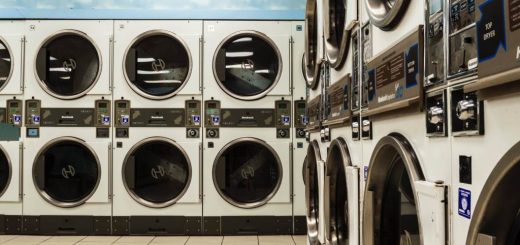7 Ways to Delete Mac Files When the Disk Is Full
When your MacBook’s hard drive is running low on space, it’s important to know what you can do to clear out some unnecessary data clogging up your device.
Lack of free disk space causes problems. For example, you might be wondering why isn’t my AirPlay working or why can’t I launch Netflix on the Mac. Sometimes, such technical issues are related to the computer’s storage. You need to know how to solve the issue, be it temporary files, such as cache and extensions, or media files.
Fortunately, there are a number of ways for Mac users to quickly and easily delete data and free up the computer’s disk.
Here are seven of the most popular methods for freeing up the drive on a MacBook.
-
Uninstall Unused Apps:
Start by going through all the applications on your laptop and checking whether you have any programs installed that you no longer use or require.
Many times we end up downloading apps that we may not need in the future and forgetting about them. Removing these will free up space, as well as improve your computer’s performance. To uninstall an app, open Finder, select Applications, right-click on the app name, and press Move to Trash.
-
Delete Duplicate Files:
If you have multiple versions of a file stored in different places on your hard drive, then consider deleting those duplicates to free up some valuable storage.
Whether they’re photos or documents, duplicate data can be identified and removed by using the Duplicate File Finder tool included with macOS (which is installed automatically). This will help minimize clutter and ensure that any extra copies of documents don’t take up crucial disk storage unnecessarily.
-
Empty Your Trash Bin:
Deleting items from your computer does not necessarily mean they are gone forever.
This only makes them invisible; instead, when items are removed from Finder, they are moved into the trash bin where they continue to take up disk space until permanently deleted from there too.
Therefore, get in the habit of emptying the trash bin to eliminate any unnecessary data from taking residence on your laptop’s hard drive.
-
Remove Large Media Files:
Videos like movies or TV series, music albums and other large media such as photos can use up a lot of storage if accumulated over time since they tend to be quite significant in size compared to other types of digital content such as text documents or emails which don’t take up much room at all.
Consider removing any non-essential media files that may no longer be needed – this could instantly free several gigabytes worth of space!
-
Optimize Photos:
Photos taken with modern smartphones often require more storage due to their high resolution quality with wide dimensions and larger file sizes than photos from older devices or cameras.
Therefore it’s essential for Mac users who frequently store images on their laptops to optimize these pictures through Apple’s built-in tools before saving them onto their computer so that they don’t occupy too much of the laptop drive unnecessarily – plus this will also enhance image quality too!
-
Clear Your Downloads Folder:
Make sure to regularly check out what kind of content has been saved into your downloads folder.
Now and then, computer users tend to forget about temporary download items after they’ve used them once – leaving behind a collection of old documents, software installers/updates, etc, which can add up over time if not managed properly resulting in significant amounts being wasted away unnecessarily in terms of storage capacity!
-
Clean Out Safari Cache Files:
Browsing history creates cache that build up over time and cause our computers’ memory capacity usage levels to gradually increase without us realizing it.
However, Mac users can manually clean out these cache files by going into Safari preferences → Advanced tab → Checkmark “Show Develop menu in menu bar” → Select Develop menu → Click ‘Empty Caches’ option (or alternatively just hold down Option+Command+E keys simultaneously).
Doing so will clear out any superfluous data stored within web browsers reducing overall usage levels significantly, thereby helping regain more space.
Closing Thoughts
In conclusion, there are various methods Mac users can utilize to deal with full hard drives to delete unwanted files from their laptops to get usable disk space quickly & efficiently – whether it’s uninstalling unused programs or simply emptying out one’s downloads folder periodically; whichever method(s) work best for each individual should be adopted accordingly so as long as results are achieved in freeing up necessary memory capacity once again!













